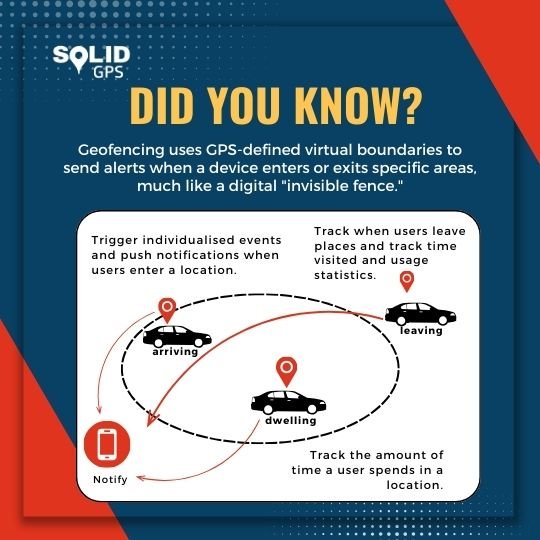Things You Need to Know When Buying a GPS Tracker
In today’s fast-paced world, GPS trackers have become indispensable tools for individuals and businesses alike.
Whether you want to keep track of your vehicle, monitor the whereabouts of a loved one, or enhance the security of your assets, GPS trackers offer reliable and efficient solutions.
However, before investing in a GPS tracker, it’s essential to consider several key factors to ensure you choose the right device for your specific needs. This article will guide you through the critical elements to consider before buying a GPS tracker.
1. Purpose of the Tracker
Determining the intended use of the GPS tracker is crucial as it shapes the required features and specifications.
Whether it’s for tracking vehicles, keeping tabs on individuals, or protecting valuables, each purpose can call for a different tracker type.
For example, discreet tracking might require a compact device, while asset tracking may benefit from features like geofencing and real-time alerts. Clearly identifying your purpose ensures that the tracker you choose is designed to meet those specific needs.
For businesses, tracking a fleet of vehicles may require advanced features such as live tracking, route optimisation, and data analytics, like an OBD tracker.
On the other hand, individuals looking to track a pet or a family member may prefer simpler devices with fewer features but long battery life, like a Bluetooth tracker.
Similarly, parents may use GPS trackers to monitor their children’s whereabouts and provide peace of mind, while outdoor enthusiasts might require GPS trackers with additional weather resistance and durability.
2. Real-Time Tracking vs. Passive Tracking
GPS trackers are available in two main types: real-time tracking and passive tracking.
Real-time trackers offer immediate location updates, making them ideal for monitoring vehicles or individuals in urgent situations. For example, if a fleet manager needs to monitor their drivers’ routes or if a parent wants to know their child’s location, real-time tracking ensures up-to-the-minute updates.
On the other hand, passive trackers store location data for later access and analysis, which is useful for reviewing trip history or route information. Passive tracking doesn’t provide real-time updates but can be valuable for businesses that require route logs or individuals who only need occasional access to data.
Both options have their advantages, and it’s important to select the type of tracker that aligns with your specific requirements.
Additionally, when choosing a real-time tracker, consider the data refresh rate—the frequency at which the device updates location data.
Trackers with higher refresh rates, such as updates every few seconds, are particularly beneficial for fleet management and situations requiring accurate, up-to-date information.
However, higher refresh rates can drain battery life faster, so it’s crucial to strike a balance between real-time accuracy and power management.
3. Accuracy and Precision
Accuracy is a critical factor in GPS tracking, especially when used for navigation or precise location monitoring.
Whether you’re tracking your vehicle’s position, keeping tabs on your child, or securing valuable assets, a high level of accuracy is essential to ensure the data you receive is reliable. Inaccurate GPS data can lead to unnecessary confusion and may reduce the usefulness of the device.
Look for devices that offer strong signal reception and high precision. Advanced GPS trackers maintain stable performance even in challenging environments or when the signal is weak, such as urban canyons, densely wooded areas, or rural locations.
Some devices incorporate technologies like assisted GPS (A-GPS) to boost accuracy, especially in areas with poor satellite reception.
A reliable system that requires minimal resets or interruptions will ensure continuous, accurate tracking for your specific needs.
For applications like fleet management, the importance of accuracy is even greater, as incorrect location data could result in delays or miscommunication. Businesses should prioritise devices that can deliver the highest possible accuracy to optimise operations and ensure customer satisfaction.
4. Battery Life and Power Management
Battery life determines how often you’ll need to recharge or replace the battery, especially in trackers used for long periods or remote locations. Devices designed for extended use often incorporate power-saving features like sleep modes, which conserve battery when not in active use.
Additionally, some trackers offer hard-wiring options to a vehicle’s battery, ensuring continuous power without the need for recharging. Long battery life is particularly important for users who need a tracker for weeks or even months without frequent access to recharging options.
For example, adventurers using GPS trackers in remote locations may need a device with a long-lasting battery to ensure that it doesn’t lose power during extended trips.
For pet tracking or personal use, lightweight trackers with rechargeable batteries may suffice, while those tracking vehicles can benefit from wired power options.
The choice of power source and battery life should be tailored to the user’s needs, whether it’s regular recharging, long-term performance, or continuous power without intervention.
5. Coverage, Connectivity, and Network Compatibility
Ensuring that your GPS tracker works reliably in your intended region is crucial.
Some trackers rely on cellular networks, while others use satellite connections for broader coverage. If you plan to use the tracker across different regions or countries, confirm that it supports the required frequency bands and is compatible with local cellular networks.
Devices that don’t match the network frequencies of your area can fail, rendering them useless.
Satellite-based trackers provide more extensive coverage, making them ideal for outdoor enthusiasts, travellers, or businesses operating in remote areas where cellular coverage is unreliable. However, cellular-based trackers are often more cost-effective for urban or suburban use.
Additionally, be aware of potential roaming costs if you plan to use the tracker in different countries, and ensure that any necessary international agreements are in place to avoid service disruptions.
GPS trackers that come with global or multi-region compatibility are typically more versatile but may incur additional fees for international use.
6. Costs, Subscriptions, and Hidden Fees
When purchasing a GPS tracker, it’s essential to investigate potential hidden fees.
These can include activation fees, platform access fees, data traffic charges, and more. While some trackers have a one-time purchase cost, others require ongoing subscriptions for their services.
Before committing to a device, ask about all potential fees, both upfront and recurring, to avoid unpleasant surprises down the line.
Factoring these into your total cost of ownership will help you budget more accurately. For example, while a device may seem affordable at first glance, subscription costs or high data usage charges could make it more expensive over time.
Make sure to understand what is included in your purchase price and which features require additional payments, whether it’s for software updates, cloud storage, or access to premium features.
A number of GPS tracking companies advertise a ‘no subscription’ tracker, however, you still have to source your own SIM card and data.
And although you’re not paying the tracking company, this is still a monthly or yearly subscription you have to pay.
7. Size and Portability
Size and portability are key considerations depending on how and where you plan to use the tracker.
Compact devices are ideal for discreet use, such as attaching to valuable items, and pets, or even for personal tracking.
Smaller trackers are easier to hide and transport, making them suitable for users who need the device to be inconspicuous or portable. For businesses, a compact GPS tracker can be beneficial for covertly tracking assets or ensuring the security of high-value items.
Larger, more robust devices may be preferred for vehicles or assets that require more extensive tracking features and durability.
Balancing portability and functionality is important, as you’ll want a device that fits your use case without being cumbersome.
8. Ease of Installation and Use
Ease of installation and user-friendliness are crucial for getting the most out of a GPS tracker.
Look for devices that come with clear setup instructions and offer intuitive mobile apps or platforms for easy data monitoring. Whether you’re tech-savvy or a beginner, a simple interface can significantly enhance your experience, ensuring that you can quickly access the information you need.
For those unfamiliar with GPS technology, devices that feature plug-and-play installation or simple app interfaces can reduce the learning curve and maximise usability.
Businesses should also consider GPS trackers that offer easy integration with existing systems and fleet management software.
9. Geofencing and Real-Time Alerts
Geofencing allows you to set virtual boundaries around specific areas.
When the GPS tracker crosses these boundaries, you receive real-time alerts, which is particularly useful for theft prevention or monitoring unauthorised movements. This feature is invaluable for vehicle recovery and asset protection.
For example, businesses can use geofencing to monitor their fleet’s movement and receive alerts if a vehicle deviates from its intended route.
Similarly, parents may use geofencing to monitor their children’s movements or ensure that elderly relatives remain safe within predetermined areas.

10. Data Security
GPS trackers collect sensitive data, including personal location and travel information, making data security a vital concern.
Devices should use encryption and follow data security best practices to protect your information from unauthorised access.
When choosing a GPS tracker, inquire about the vendor’s security protocols, including how data is stored, transmitted, and protected.
This information can also be found in their Terms & Conditions or Privacy Policy.
11. Durability and Weather Resistance
Consider the environmental conditions where the tracker will be used. For outdoor applications, it’s important to choose a device that can withstand rain, extreme temperatures, humidity, dust, and physical impacts.
Durability and weather resistance ensure that the tracker continues to function effectively regardless of harsh conditions.
For businesses that require GPS tracking in rugged conditions, such as construction or shipping industries, choosing a durable and weather-resistant device is crucial for long-term performance.
12. Customer Support and Warranty
Finally, assess the manufacturer’s reputation for customer support and the warranty offered with the device. A responsive support team can be invaluable when troubleshooting technical issues.
Additionally, a comprehensive warranty provides peace of mind in case of defects or malfunctions.
Prioritise manufacturers that are known for reliability and offer robust after-sales support.
An easy way to identify this is to search for company reviews on common platforms such as Trustpilot, ProductReview, and Google Reviews.
13. Data Storage, Retrieval, and Offline Functionality
Some GPS trackers store data locally, while others use cloud-based storage. Trackers that offer offline functionality can store trip data even when internet connectivity is lost.
Once the connection is restored, the data is uploaded, ensuring no gaps in your tracking history. For devices without this capability, frequent connectivity drops could result in incomplete records.
Choosing a tracker with reliable data storage and retrieval ensures that all location information is accessible when needed.
Additionally, cloud-based systems offer the convenience of accessing your data from anywhere, whereas offline storage may limit your ability to access real-time information.
Conclusion
Selecting the right GPS tracker involves understanding your specific needs and evaluating features such as real-time tracking, battery life, and network compatibility. With various options available, it’s crucial to consider what will work best for your situation.
To help you navigate your choices, we’ve compiled an FAQ section below addressing common questions and concerns. This resource provides additional insights on installation, features, and troubleshooting, guiding you toward the best GPS tracker for your needs.
We encourage you to explore this information to make a well-informed decision that meets your requirements effectively.
Frequently Asked Questions
- Solid GPS Tracker
- SIM Card
- Unlimited SIM Card Data Plan
- Solid GPS Sticker
- Charging Cord
- Instruction Manual
- 31-Day Free Trial
- 12-Month Warranty
All you need to do is download the Solid GPS app from the Google Play Store (Android 4.4+) or the App Store (iOS 13+).
You can also track your vehicle on any device connected to our website, from your tablet to your computer.
Yes, you can cancel your subscription during your 31-day free tracking period, and you won’t be charged anything.
You can easily cancel your subscription in your account settings or by contacting us via email or phone.
We guarantee that Solid GPS works in Australia and New Zealand, and we also support payments in each currency.
Yes, you can. All you need to do is connect your Solid GPS tracker to your vehicle through a standard USB port.
The battery in your tracker is rechargeable, so there’s no need to replace it.
You’ll also receive reminders to your phone and email when your tracker’s battery is low, at 30%.
Since the tracker is recharged infrequently (every 3, 6, or 12 months), it will last longer than most electronic devices, with the battery beginning to deteriorate after 500 recharges.
Your tracker is designed to be tucked away inside your vehicle, hidden, and away from any harsh elements.
However, if you’re concerned that it might come in contact with dust or water, we suggest putting it in a sealed container or a ziploc bag to give it some extra protection.
Yes, and it’s super easy to keep track of all your trackers – you can add as many as you want to your account.
To make sure each one is easy to identify, you can give each of them a unique name and colour.
This can be done quickly by heading over to the account settings section on the Solid GPS app or website.
The tracker does not make any noise and it ONLY emits light while being recharged.
Your Solid GPS tracking device uses the full Telstra & Vodafone network in Australia and Spark & Vodafone network in New Zealand, whichever has the strongest signal at that point in time.
If your tracker enters an area with no mobile coverage, don’t worry! It will save the locations your vehicle travels to and will upload where it went when your vehicle is back in an area with coverage.
The subscription covers the cost of the SIM card inside your tracker and the data it uses.
Instead of negotiating with telcos and finding the best SIM card and plan prices, we organise your SIM card for you, all for a flat competitive rate.
We’re able to achieve such a low-cost subscription because we have tens of thousands of SIM cards in our system, unlocking bulk discounts for you!
The subscription also covers the cost of the Solid GPS app, local customer support, & so much more.
We also don’t plan on and have never increased the price of our subscription.
As your vehicle moves, your tracker will update its location every 2 minutes and gradually increase the time between updates to every 10 minutes.
You can also turn on ‘Emergency Mode’ to lock the tracking intervals to every 2 minutes.
Additionally, you can set geofences/boundaries to receive alerts if your vehicle begins to move.
To see what the dashboard/app looks like, please create an account at solidgps.com/registration/, and you’ll be taken to our demo dashboard.
Yes, multiple people can download the same app and log in to the same account to view the same tracker.
You can also securely share your tracker with friends or family through our sharing feature.
For example, if you’re going on a trip, share your private tracking link with others, and they can see where you are without being able to change any settings. You can cancel this link at any time too.
Order Australia's Best Portable GPS Tracker Below
Place Your Order
Standard Tracker
Budget Option
- Average 3-Month Battery Life
- USB Rechargeable
- 85mm*50mm*22mm
- 31-Days Free Tracking
- 4G SIM + Unlimited Data*
- Free Standard Shipping
Large Tracker
Most Popular
- Average 6-Month Battery Life
- USB Rechargeable
- 85mm*50mm*22mm
- 31-Days Free Tracking!
- 4G SIM + Unlimited Data*
- Free Standard Shipping
MEGA Tracker
Best Value
- Average 12-Month Battery Life
- USB Rechargeable
- 85mm*55mm*35mm
- 31-Days Free Tracking
- 4G SIM + Unlimited Data*
- Free Standard Shipping
31-day Free Tracking Before Subscription Begins.

Solid GPS is based in Melbourne, Victoria. All design, development and assembly is done in-house.
© Copyright 2025 Solid GPS
Privacy Policy | Terms & Conditions






